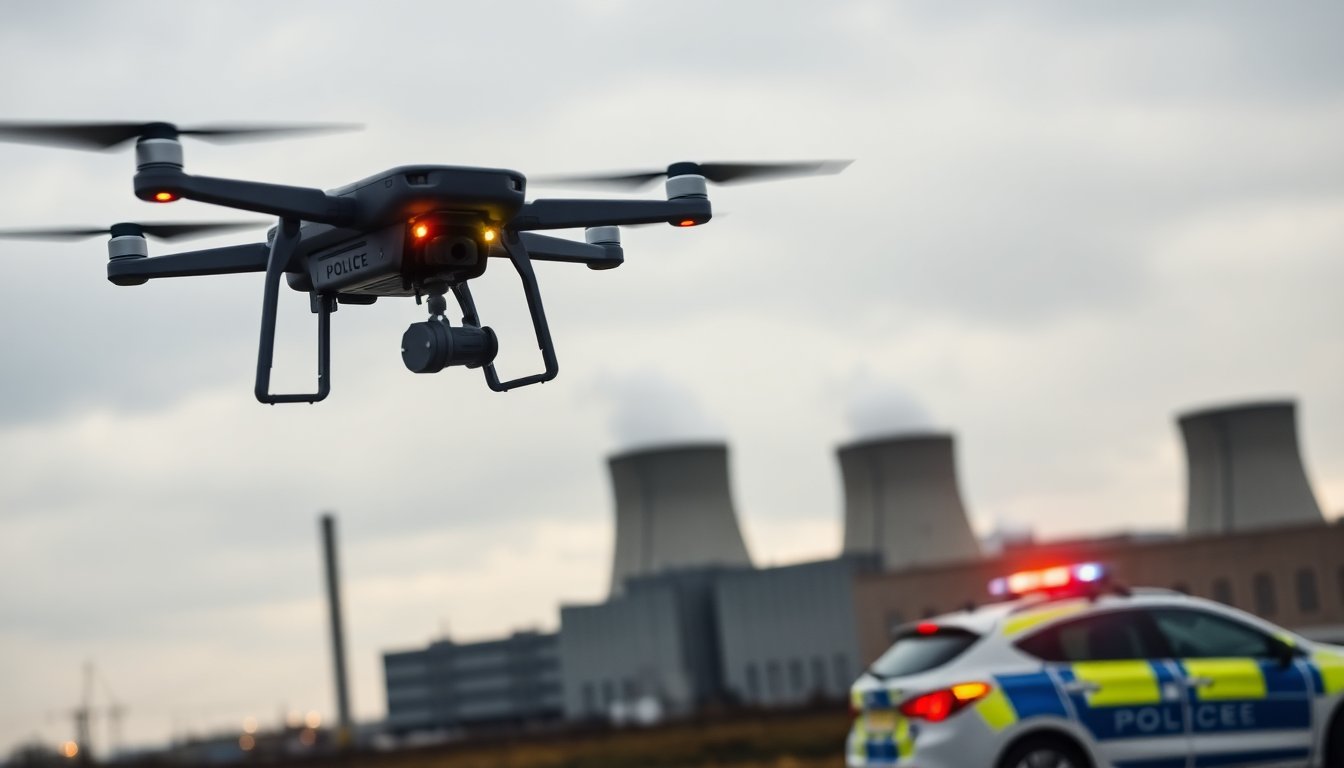Table of Contents
In recent weeks, Europe has witnessed a notable uptick in drone sightings, notably over sensitive locations such as airports and military installations. This surge has placed Belgium on high alert, particularly following incidents involving unidentified drones near key infrastructures, including the Doel nuclear power plant close to Antwerp. With reports of multiple drone incursions leading to airport shutdowns and flight cancellations, authorities are now compelled to take immediate action to enhance security protocols.
Belgium’s National Security Council convened urgently to address these alarming developments. The meeting, called by the Minister of the Interior, aimed to evaluate the ongoing threat and coordinate a comprehensive national response. The growing concern is that these drone activities may be linked to state-sponsored actions, with many officials pointing to potential Russian involvement as a significant factor in these incursions.
The response of European authorities
Authorities in Belgium have reported that drone sightings have repeatedly disrupted operations at major airports, including Brussels and Liège. For instance, on a recent Tuesday, over fifty flights were canceled after drone sightings led to the temporary closure of the Brussels airport. The frequency of these incidents has raised serious questions about the effectiveness of current airspace security measures.
Collaboration with international allies
In response to Belgium’s request for assistance, the United Kingdom has pledged to provide expertise and resources to help bolster drone detection and defense capabilities. British military officials acknowledged the need for collaborative efforts to counteract this emerging threat, particularly after similar incidents were reported in Germany. In October, drone sightings at Munich Airport forced the grounding of seventeen flights, prompting the German government to take similar actions.
Identifying the source of the threat
Germany’s Minister of Defense, Boris Pistorius, highlighted the potential implications of these drone activities, suggesting that they may serve as a warning against Belgium’s discussions regarding the use of frozen Russian assets to support Ukraine. He expressed concern that such actions could be interpreted as an attempt to instill fear and insecurity among European nations contemplating further assistance to Ukraine.
Strategic planning for the future
With the ongoing drone threat, both Belgium and Germany are proactively developing strategies to enhance their respective defense mechanisms. In Belgium, the establishment of a national aerial surveillance center is underway, aimed at improving the detection and identification of unauthorized drones. This initiative is set to become operational by January, with support from the Ministry of Defense.
Similarly, Germany has initiated discussions at the federal level to formulate an inter-ministerial action plan that addresses the increasing hybrid threats posed by drones. These discussions are not limited to national security; they also encompass the need for regional collaboration among northern German states that face similar threats.
International collaboration and future initiatives
As European nations grapple with the implications of drone technologies, there is a growing recognition of the need for a unified approach to airspace security. NATO has already begun enhancing aerial patrol operations in Eastern Europe, employing surveillance aircraft capable of monitoring vast areas for potential incursions. However, the challenge remains in effectively detecting smaller, agile drones amidst conventional aircraft.
Experts emphasize the importance of adapting current systems to improve drone detection capabilities. Captain Joel, an aircraft commander involved in NATO’s surveillance efforts, noted that understanding the evolving nature of aerial threats is crucial for maintaining security in the region. The lessons learned from the conflict in Ukraine have underscored the adaptability required in military strategies.
As part of their long-term strategy, European Union officials are advocating for the establishment of a comprehensive ‘drone wall’ by 2027. While this ambitious plan aims to create a robust defense network across member states, experts caution that the effectiveness of such initiatives will depend on prioritizing the protection of critical infrastructure.
In conclusion, the recent surge in drone sightings over key infrastructures in Belgium and Germany highlights the urgent need for enhanced security measures. As authorities work to combat this evolving threat, international collaboration and innovative strategies will be essential in safeguarding critical assets and ensuring the safety of airspace in Europe.


